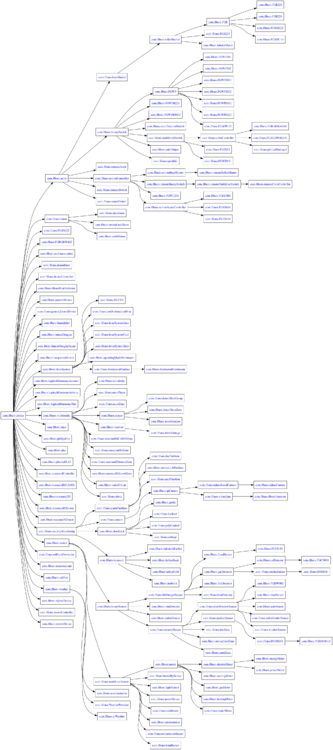-
Compteur de contenus
208 -
Inscription
-
Dernière visite
-
Jours gagnés
41
jang a gagné pour la dernière fois le 18 mars 2024
jang a eu le contenu le plus aimé !
Profile Information
-
Sexe :
Homme
-
Ville :
Home
-
Box
Home Center 2
-
Version
HC3
Visiteurs récents du profil
2 310 visualisations du profil
jang's Achievements
-
jang a commencé à suivre Appeler une "function" de plusieurs scénarios , Besoin d'aide pour rétro-ingénierie d'une porte automatique (poulailler) , QuestionS HC3 et LUA et 4 autres
-

Besoin d'aide pour rétro-ingénierie d'une porte automatique (poulailler)
jang a répondu à un(e) sujet de fel-x dans Le bistrot
We can't disable or change font/color of button (except for unicode characters) I understand that you would like to disable one option but still show the user that the option exists. "There is Open Door, but it's not available right now" An alternative, that may be understandable for the user, is to have a single button that serves both functions and changes text between "Open Door" and "Close Door". Another alternative is to change the text of the inactive button to be strike-through letters (unicode), "O̶p̶e̶n̶ ̶D̶o̶o̶r̶" https://www.contentharmony.com/tools/strikethrough-text-generator/ -

Quick App - Gestionnaire d'Événements Automatique - GEA pour HC3
jang a répondu à un(e) sujet de Lazer dans Quick App Developpeur
Well, it's a bit tricky. If you use setProperty, it will not call the QAs updateProperty method. Some QAs may have written code to override the logic for QuickApp:updateProperty and then it's not called. The other problem is that the Device:updateProperty that QuickApp:updateProperty inherits from, do update the QuickApp's objects self.properties[prop]=value If we only call setProperty, self.properties.value will differ from fibaro.getValue(self.id,"value") which could cause issues for some QAs... One could check if the device is a QA and call updateProperty, and if not call setProperty... local isQACache = {} local function isQA (id) if isQACache [id]~= nil then return isQACache[id] end local d = __fibaro_get_device (id) if d then for _,i in ipairs(d.interfaces) do if i == 'quickApp' then isQACache[id] = true return true end end end isQACache [ id ]= false end takes on average 10ms per QA for my 200 QAs. And the result is cached so checking same id is then fast... -
This only works if the device is a QA. QuickApp's have 'updateProperty' defined as an API. I would recommend api.post("/plugins/updateProperty", { deviceId = 20, propertyName = 'userDescription', value = 'FWPP1' })
-
No there is no reason. Except maybe a wish to bring all functionality in under fibaro.* - but they can't remove setTimeout due to old QAs/Scenes. function fibaro.setTimeout(time,fun) return setTimeout(fun,time) end Like the rebranding of fibaro.* to hub.* - but also here, to be backward compatible with QAs/Scenes they can never remove fibaro.*... Another mystery is that Fibaro maintains 2 implementations for the fibaro.* functions. One for Scenes and one for QAs - and they are not always in sync... My thinking has been that it is 2 different consultant companies that do the Scene engine vs the QA framework... :-)
-
Have you tried it? Did it work for you?
-
What kind of animal is Conso Live (Enphase_MeterTotalConsumptionPower_Updated) that is expect to send an event/signal. Another QA? another zwave device? something else?
- 16 réponses
-
- déclencheur
- event
-
(et 1 en plus)
Étiqueté avec :
-
Problems: 1. You set 'value' but test 'state' 2. If you click 'off' -> 'on' quickly you may end up with 2 running loops... I think @laser meant something like this (but here we use the property instead of a local var) local function loop() if (hub.getValue(plugin.mainDeviceId,"value") == true) then print("Run Loop action") end -- loop setTimeout(loop,1000*loop_value_sec) -- secondes end loop() function QuickApp:turnOn() self:debug("binary switch turned on") self:updateProperty("value", true) end function QuickApp:turnOff() self:debug("binary switch turned off") self:updateProperty("value", false) end
-
Unfortunately not. I have QAs that don't work on the HC3L because I use os.time() a lot. os.time(), these days, returns a value dangerously close to what fits in 32 bits and when doing arithmetics with the value, calculating time, it sometimes overflow and create bad results on the HC3L... So, I recommend the HC3L only for block scenes... For dev platform I use https://forum.fibaro.com/topic/66394-visual-studio-code-vscode-for-quickapp-development/ Life is too short for trying to develop directly on the HC3/HC3L...
-
Are you running it on a HC3 Lite? Fibaro, in their wisdom to save space, compiled the Lua environment for the HC3L as 32bits... ...which cause all kinds of issues like these...
-
-
api.put("/rooms/239",{icon='User1002'})
-
local commands = { Opened = "https://airsend.cloud/device/xxxxx/command/4/?session=???", Closed = "https://airsend.cloud/device/xxxxx/command/5/?session=???", Stopped = "https://airsend.cloud/device/xxxxx/command/3/?session=???", } function QuickApp:command(cmd,state) assert(commands[cmd],"Bad command") local http = net.HTTPClient() http:request(commands[cmd], { success = function(response) if response.status == 200 then print('OK, réponse : '.. response.data) self:debug("base shutter "..cmd:lower()) self:updateProperty("state", state or cmd) else self:error("Erreur : status=" .. tostring(response.status)) end end, error = function(err) self:error("Erreur : " .. err) end, options = { method = 'GET' } }) end function QuickApp:open() sendCommand('Opened') end function QuickApp:close() sendCommand('Closed') end function QuickApp:stop() sendCommand('Stopped',"Unknown") end
-
The only problem is that hub.call can't return any value - to do this you need to add additional sorcery...
-

vider une propriété de type tableau dans l'API
jang a répondu à un(e) sujet de jjacques68 dans Support
Well, you have the tools, the rest is just some list manipulations... ;-) local days = { monday=0, tuesday=1, wednesday=2, thursday=3, friday=4, saturday=5, sunday=6 } local function map(list) local r ={} for _,e in ipairs(list) do assert(days[e],"Bad day:"..tostring(e)) r[e]=true end return r end local function flatten(list) local r ={} for e,_ in pairs(list) do assert(days[e],"Bad day:"..tostring(e)) r[#r+1]=e end table.sort(r,function(a,b) return days[a] <= days[b] end) return r end -- self:setSprinklerDays(4,{"monday",wednesday"}) -- will set scheduled days to monday and wednesday for sprinkler schedule 4 function QuickApp:setSprinklerDays(sprinkerId,list) return api.put("/panels/sprinklers/4" ,{ days = json.util.InitArray(flatten(map(list)))}) end -- self:addSprinklerDays(4,{"monday",wednesday"}) -- will add monday and wednesday to currently scheduled days for sprinkler schedule 4 function QuickApp:addSprinklerDays(sprinklerId,list) local days = map(api.get("/panels/sprinklers/"..sprinklerId).days or {}) for _,d in ipairs(list) do days[d]=true end return api.put("/panels/sprinklers/4" ,{ days = json.util.InitArray(flatten(days))}) end -- self:removeSprinklerDays(4,{"monday",wednesday"}) -- will remove monday and wednesday from currently scheduled days for sprinkler schedule 4 function QuickApp:removeSprinklerDays(sprinklerId,list) local days = map(api.get("/panels/sprinklers/"..sprinklerId).days or {}) for _,d in ipairs(list) do days[d]=nil end return api.put("/panels/sprinklers/4" ,{ days = json.util.InitArray(flatten(days))}) end function QuickApp : onInit () print(self:setSprinklerDays(4,{"monday","friday"})) print(self:addSprinklerDays(4,{"saturday"})) print(self:removeSprinklerDays(4,{"monday"})) end -

vider une propriété de type tableau dans l'API
jang a répondu à un(e) sujet de jjacques68 dans Support
Btw, this is the json encoder/decoder used in QAs https://github.com/harningt/luajson/ (Scenes use another implementation)






